Haldi, Manjal, Curcuma longa, Turmeric is a plant that has a very long history of medicinal use, dating back nearly 4000 years. In Southeast Asia, turmeric is used not only as a principal spice but also as a component in religious ceremonies. Turmeric is full of bioactive compounds, antioxidants, and boosting immune and neurotrophic factors essential for brain function. It is so good for skin, digestive aids, in smoothies, in ghee, mixed into rice for golden rice and curries. It is a potent anti-inflammatory for chronic pains and issues, for lowering risk of heart disease , arthritis, and even boosting the mood, and many cherish it for a spiritual use as well. It is used in many Siddha and Ayurvedic and Yogic diets, fasting, and toning the stomach and digestive tract. It is used in formula to expel phlegm or mitigate imbalance of kapha, as well as to open blood vessels in order to improve blood circulation. It can be incorporated into foods, including rice and bean dishes, to improve digestion and reduce gas and bloating. It is a cholagogue, stimulating bile production in the liver and encouraging excretion of bile via the gallbladder, which improves the body’s ability to digest fats. Sometimes, turmeric mixed with milk or water is taken to treat intestinal disorders as well as colds and sore throats.
Traditional uses hail it for strengthening the overall energy of the body, a digestive aid, dispelling parasites, regulating menstruation, dissolving gallstones, and relieving arthritis and for inflammation of all kinds. In Ayurveda it is said to balance the three doshas (vata, pitta, and kapha). It aids in removing ama ( Ama means toxin or undigested metabolic waste), and it is a lekhanya (scrapes accumulations) of toxins, biofilms, wastes in the blood and digestive tract. It is a potent rasayana aiding in longevity and general health, it aids in the balancing of the rasa and rakta dhatus (the blood and plasma of the circulatory system). It is both an exoteric herb of Agni (digestive fire) and is said to impart sense of well-being, calm, aids in meditation, in breathing exercises. It is neuroprotective, with antioxidant and potent antiseptic and anti-bacterial properties and is one of the most clinically studied herbs in the world. As a potent detox herb, it aids in cleansing the liver as well in treatment of diabetes. Modern in vitro studies reveal that turmeric is a potent antioxidant, anti-inflammatory, antimutagenic, antimicrobial, and for dire conditions.
For more extensive botanical and traditional information please see Rasayana series, found in the Rasayana Ausadhi offerings, especially V.3.
For the best Haldi doodh Golden Milk, use our extract powder, that dissolves the best into milk and is the most bioavailable and contains the perfect amount of long pepper.
Ingredients
1 cup (preferably raw milk), or coconut milk or almond milk
1 cup water
1 (3-inch) cinnamon stick (or 2tsp ground course and strained after)
1/4-1/2 teaspoon 5x Golden Milk Powder Elite
additional additives:
1 tsp tulsi (optional)
1 (1/2-inch) piece ginger, unpeeled, thinly sliced
Or: 2 tsp ground ginger (plus more to taste)
a few peppercorns
1 Tbsp maple syrup, honey or jaggery
1/4 tsp whole black peppercorns
Sprinkle on top Ground cinnamon (for serving)
1. Whisk the milk, cinnamon stick, 5x Golden Milk Powder Elite, ginger, maple syrup, coconut oil, peppercorns, and 1 cup water in a small saucepan; bring to a low boil.
2. Reduce heat and simmer until flavors have blended, about 10 minutes.
3. Strain through a fine-mesh sieve into mugs and top with a sprinkle of cinnamon.
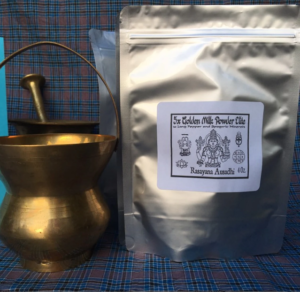
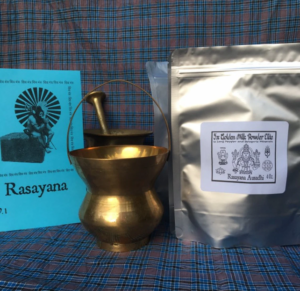
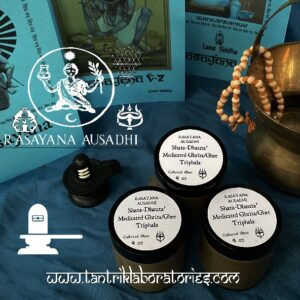
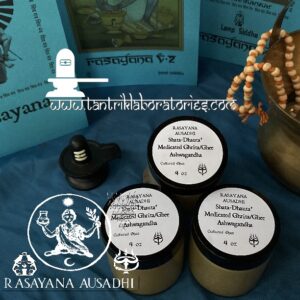
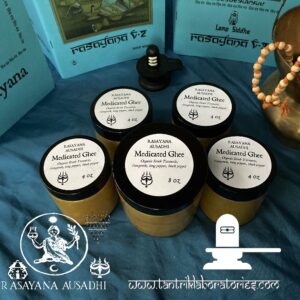
 Adding...
Adding...